According to Experts, We Should All Be Using This Divisive Hair Product
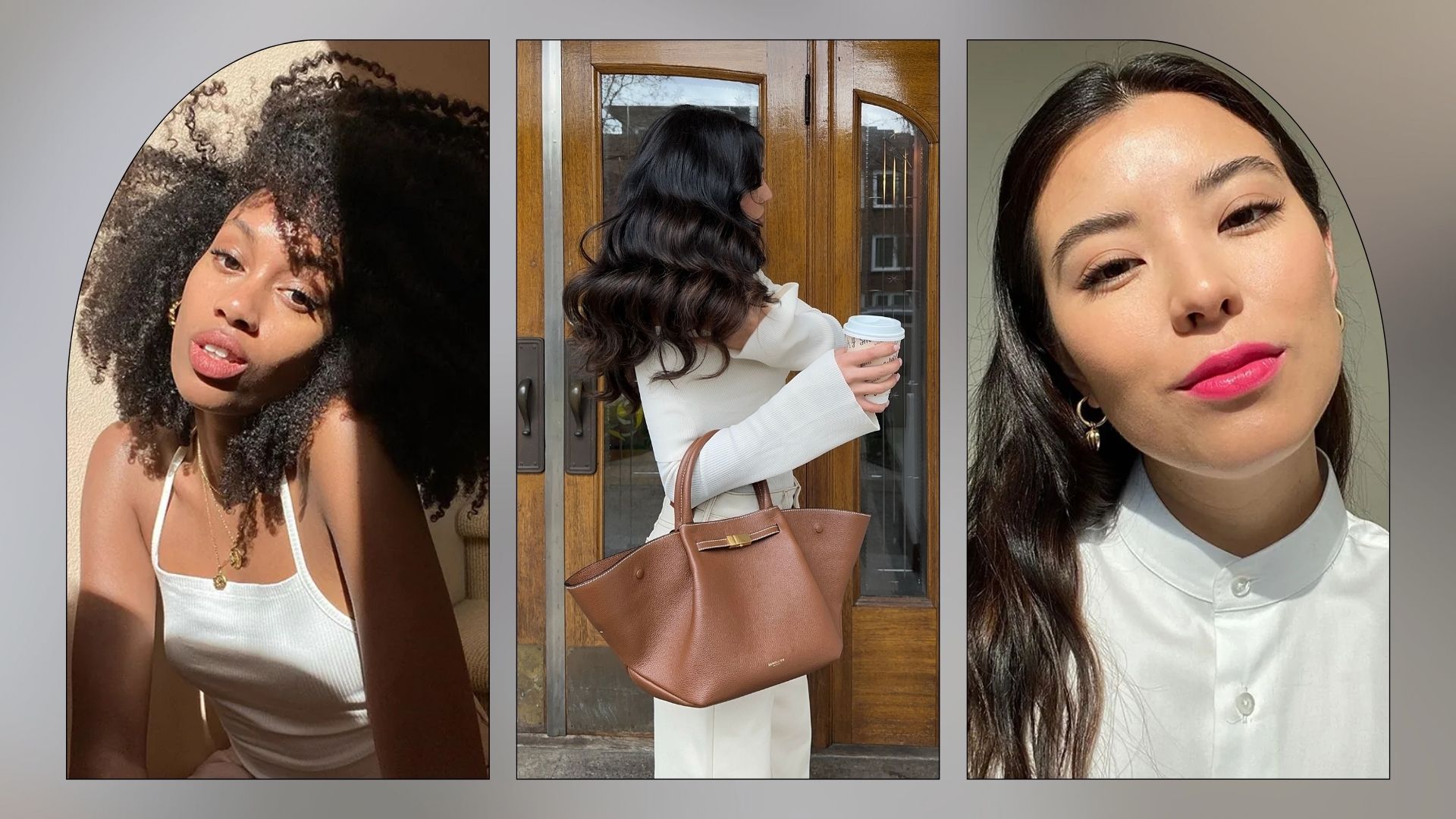

Shannon Lawlor
Much like face oils, hair oils also have the power to divide beauty buffs far and wide. While some love the nourishing, intensely moisturising properties of hair oils, others detest their weighty, greasy nature and prefer to stick to the best conditioner or hair mask. However, unlike face oils, when it comes to expert opinion, the general consensus is that, actually, adding a hair oil into your routine can only make things better; you just need to know how to use them.
As someone with incredibly thick, wavy hair, I have used hair oils for as long as I can remember. I use a lot of heat and bleach on my ends, so this product is my secret weapon when it comes to taming flyaways and adding shine. Although I tend to opt for a thicker consistency, after years of testing these products out, I've come across so many lightweight oils that would be perfect for finer and thin hair types.
In fact, I've tried so many different hair oils that I thought it was about time to round up my favourite ones on the market that deliver shine without leaving a hint of greasiness. But before we get into my product selection, I wanted to reach out to those most in the know to find out a little more about this divisive hair product.
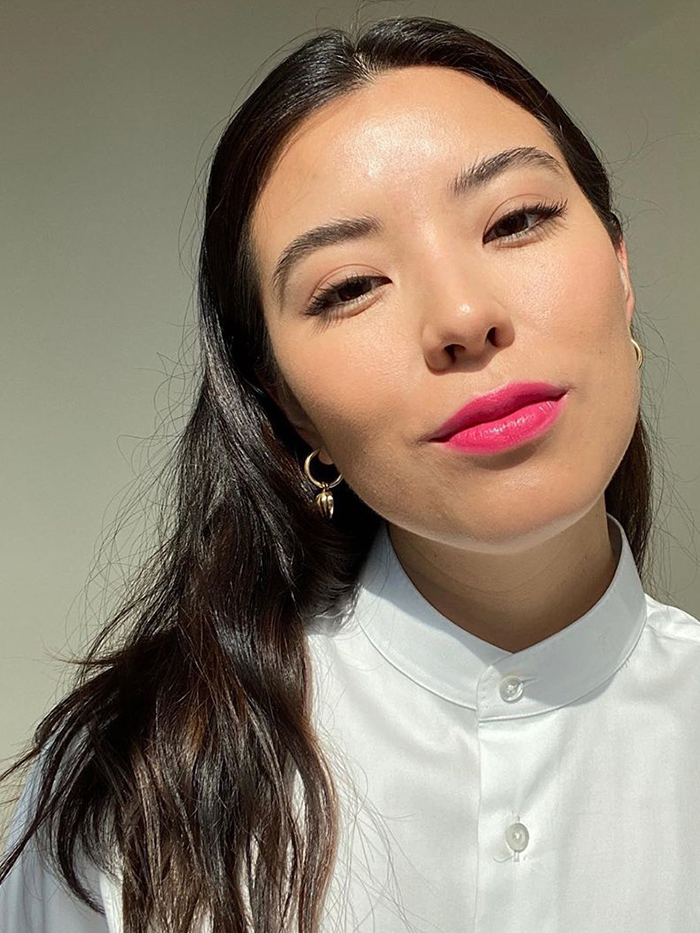
What Does a Hair Oil Do?
"Hair oils help to seal the hair cuticle, laying it flat and adding smoothness and shine. Many oils contain fatty acids, which replace the lipids in damaged hair,” says Andrew Barton, Headmaster's creative and communications director.
And it turns out that you don’t just have to have dry, dehydrated strands to reap the benefits of oils. "It’s a myth that hair oils will weigh hair down, making it feel heavy and look oily. In fact, oils can be more lightweight than a balsam-based conditioning agent, and they always add shine. The key to using them is in the application,” advises Barton.
Of course, there are also lots of scalp oils on the market. These are slightly different from your typical hair oil as they are applied to the roots of the hair instead of the ends. "You should skip heavy oils for the scalp," says award-winning hairstylist Dalibor Vrtina. "If applied properly, [these] hair oils can add nutrients, stimulate the scalp and even help control dandruff and itchiness."
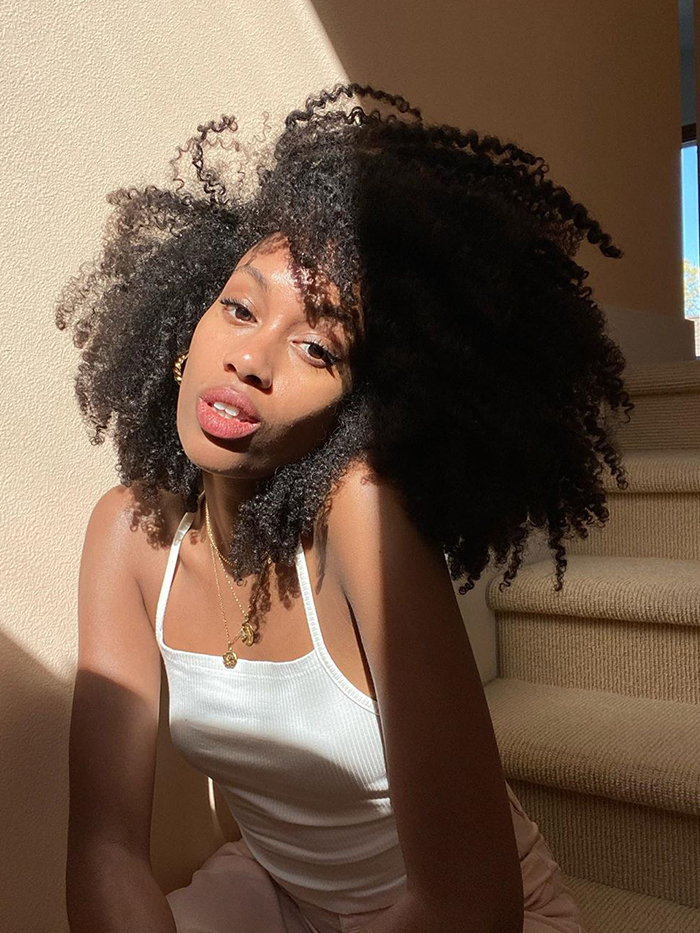
Can All Hair Types Use a Hair Oil?
As mentioned above, everyone can benefit from adding a hair oil into their routine. In the most obvious case, hair oils are truly wonderful at adding moisture to dry strands. Those with a dry, coarse hair texture are likely to see the most transformative results out of using a hair oil. Depending on your specific texture and your chosen product, oils to treat dry strands can be used in different ways. "The best oils for dry hair tend to be more concentrated forms like argan, coconut and avocado oil. For seriously dry hair, I advise using oils after your shampoo to provide ultimate hydration,” says Antony Rawlings, creative director at Lockonego for Redken. Depending on the formula, you can also use as a pre-wash treatment, a post-wash leave-in treatment or apply it to dry ends on non-wash days to increase shine and manageability.
That being said, a hair oil can be used on fine hair types, too. "The secret to using hair oils on fine hair is to control the amount you use,” says Barton. "Less is more, so apply only one drop, to begin with, and build up if you need more. Massage two to three drops into the palms, tip your head upside down and apply the oil through the length. To minimise breakage, I like to comb it through with a Manta hairbrush.”
If you have curly or coily hair, Vrtina recommends looking for an oil with a thicker consistency. "I would definitely recommend thicker oils," he says. "My advice would be to use it on wet hair so you can lock in that moisture."
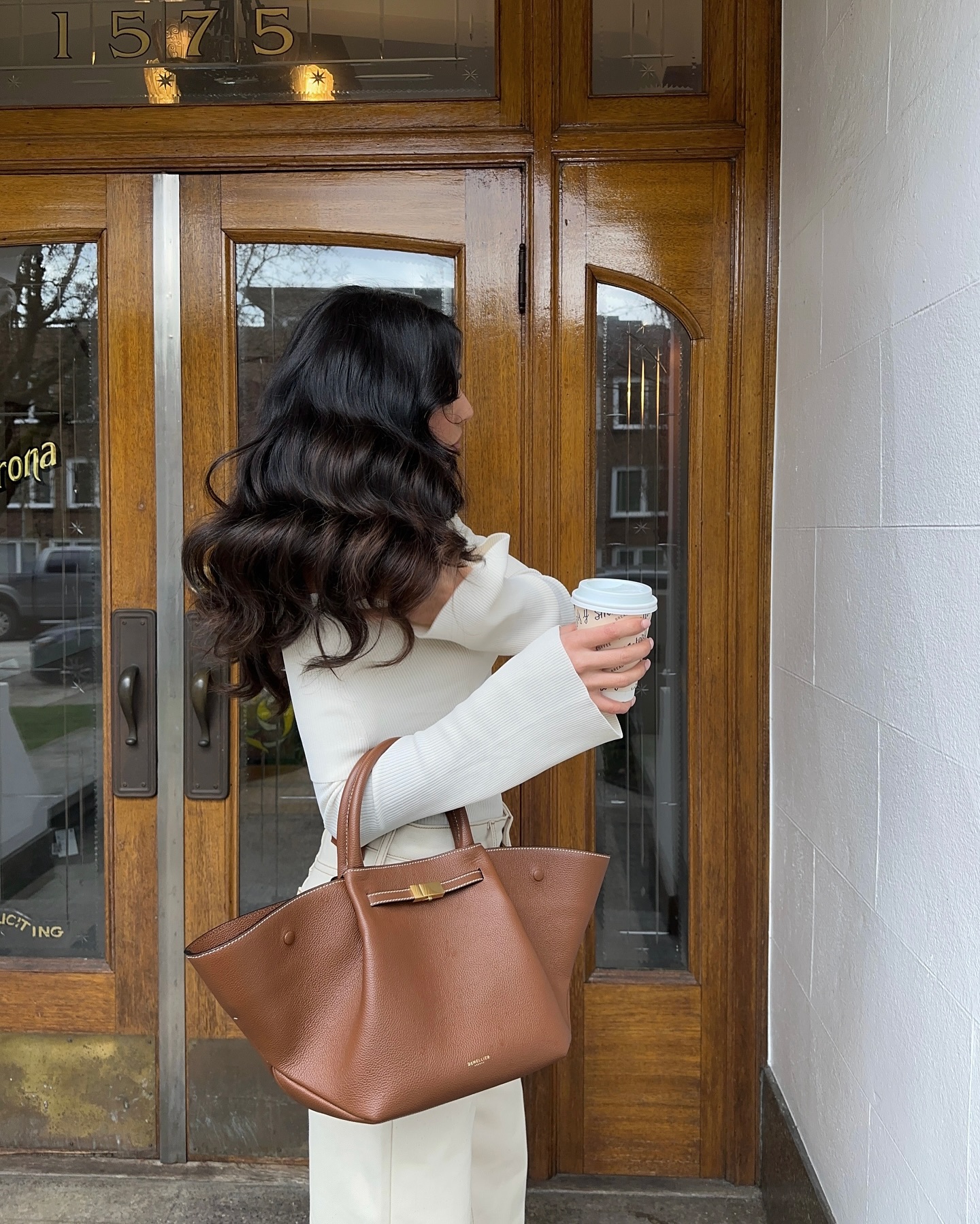
How to Use a Hair Oil
Using a hair oil correctly is totally dependant on what kind of product you go for. Some can be used on damp hair, while others can only be used on dry ends, so I always recommend reading the instructions. However, Vrtina does have some top tips. If you're using oil as a finishing step, he recommends putting a few drops between your palms and applying evenly along the lengths and ends. "There is no need to do your roots, but if you want to calm down any flyaways, you can [apply it to the roots], just don’t go too heavy with it."
So, now that we know all that, keep on scrolling for my tried-and-tested hair oil recommendations...
The Best Hair Oils
- Best hair oil for damaged hair: Olaplex No. 7 Bonding Hair Oil
- Best hair oil for shine: Gisou Honey Infused Hair Oil
- Best hair oil for fine hair: Virtue Healing Oil
- Best hair oil for textured hair: Charlotte Mensah Manketti Hair Oil
- Best hair oil for your scalp: Fable & Mane HoliRoots Hair Oil
1. Olaplex No. 7 Bonding Hair Oil
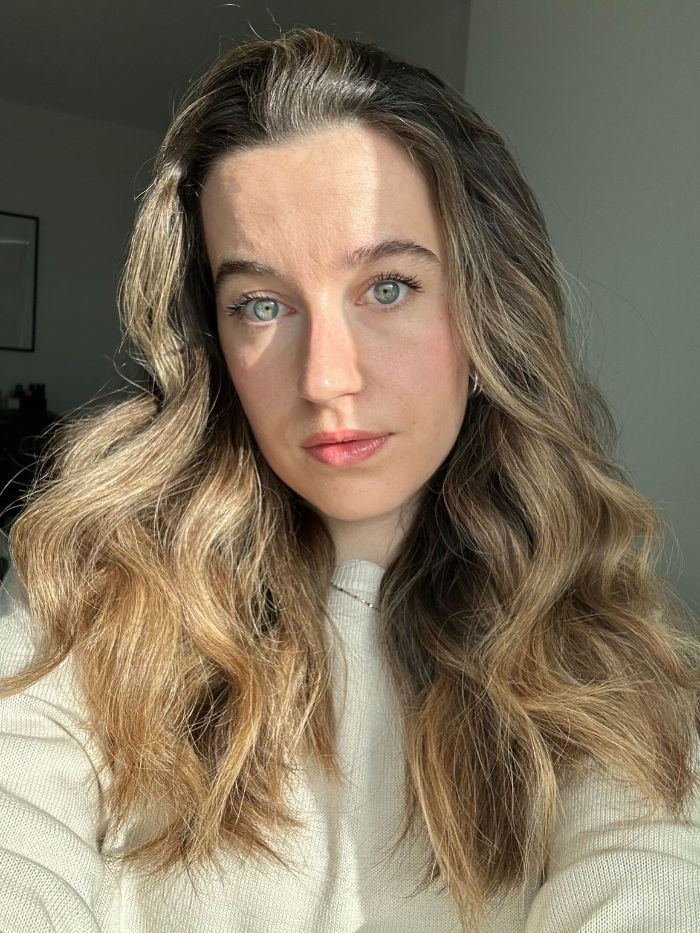
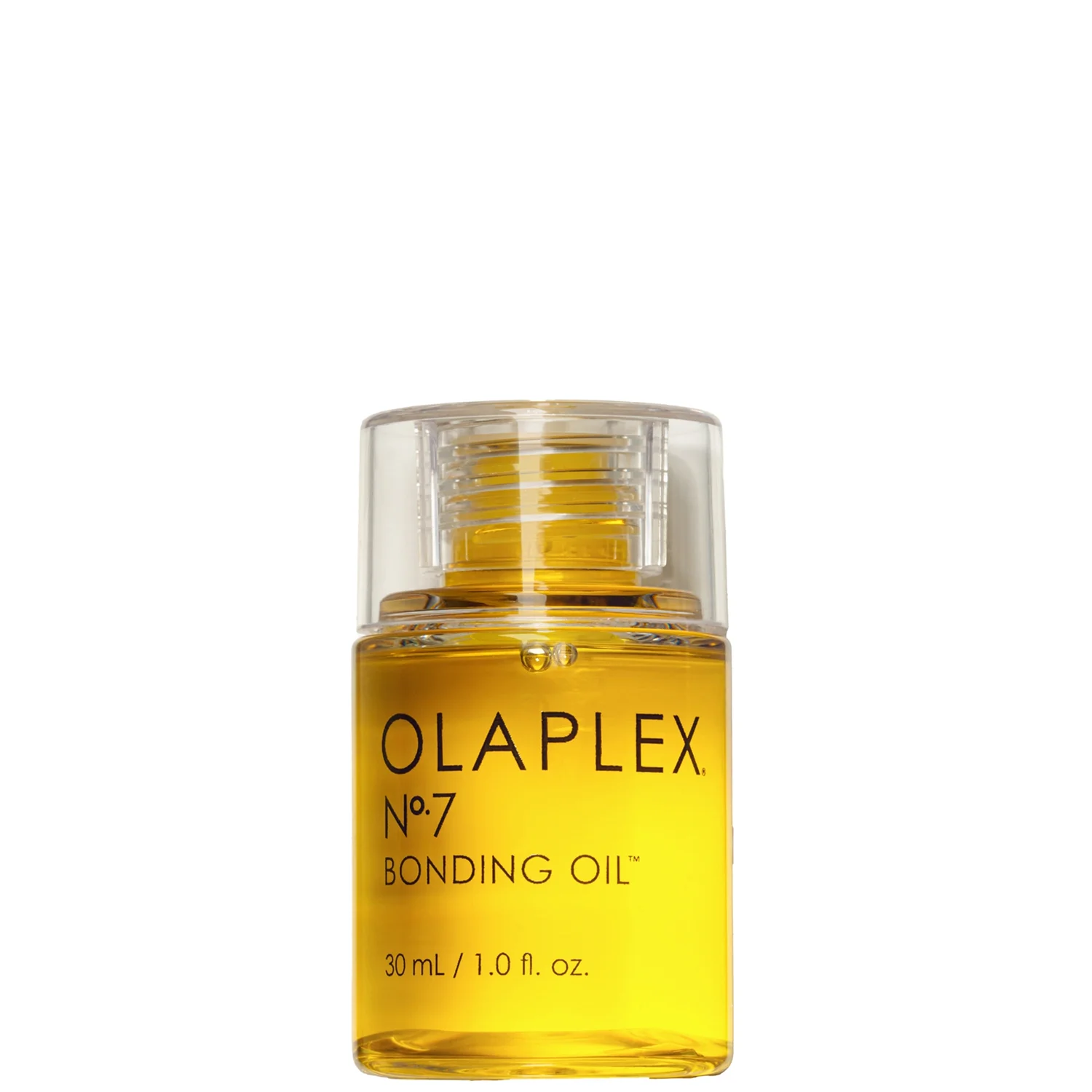
Best for: Damaged hair
Why it's the best: Olaplex is renowned for its bond-building technology, which is why it's a go-to brand for anyone with damaged hair. This hair oil works to hydrate your hair, reduce the appearance of split ends and protect from heat. Oh, and it also adds salon-worthy shine.
My review: This is a firm favourite in my collection. The bottle is small, but a little bit goes a long way, so I'm always careful not to use too much. That being said, it never feels greasy or like it's weighing down my ends. It adds the most beautiful shine and always makes my hair look healthier in seconds.
Pros
- Can be used on damp or dry hair
- Reduces the appearance of split ends
- Adds shine
- Protects the hair from heat
Cons
- A little goes a long way, so be careful not to apply too much
2. Gisou Honey Infused Hair Oil
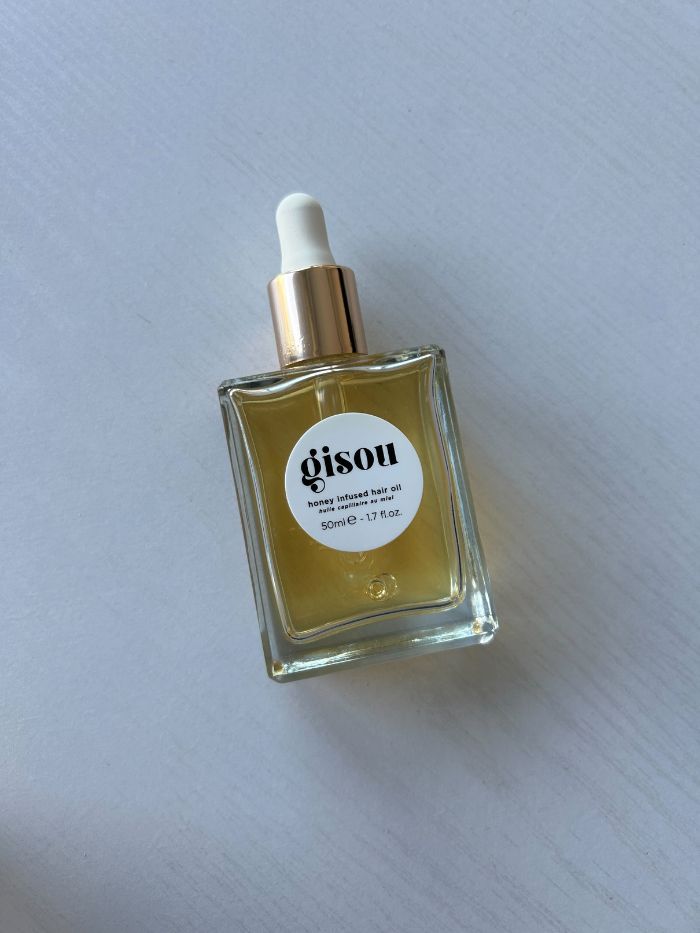
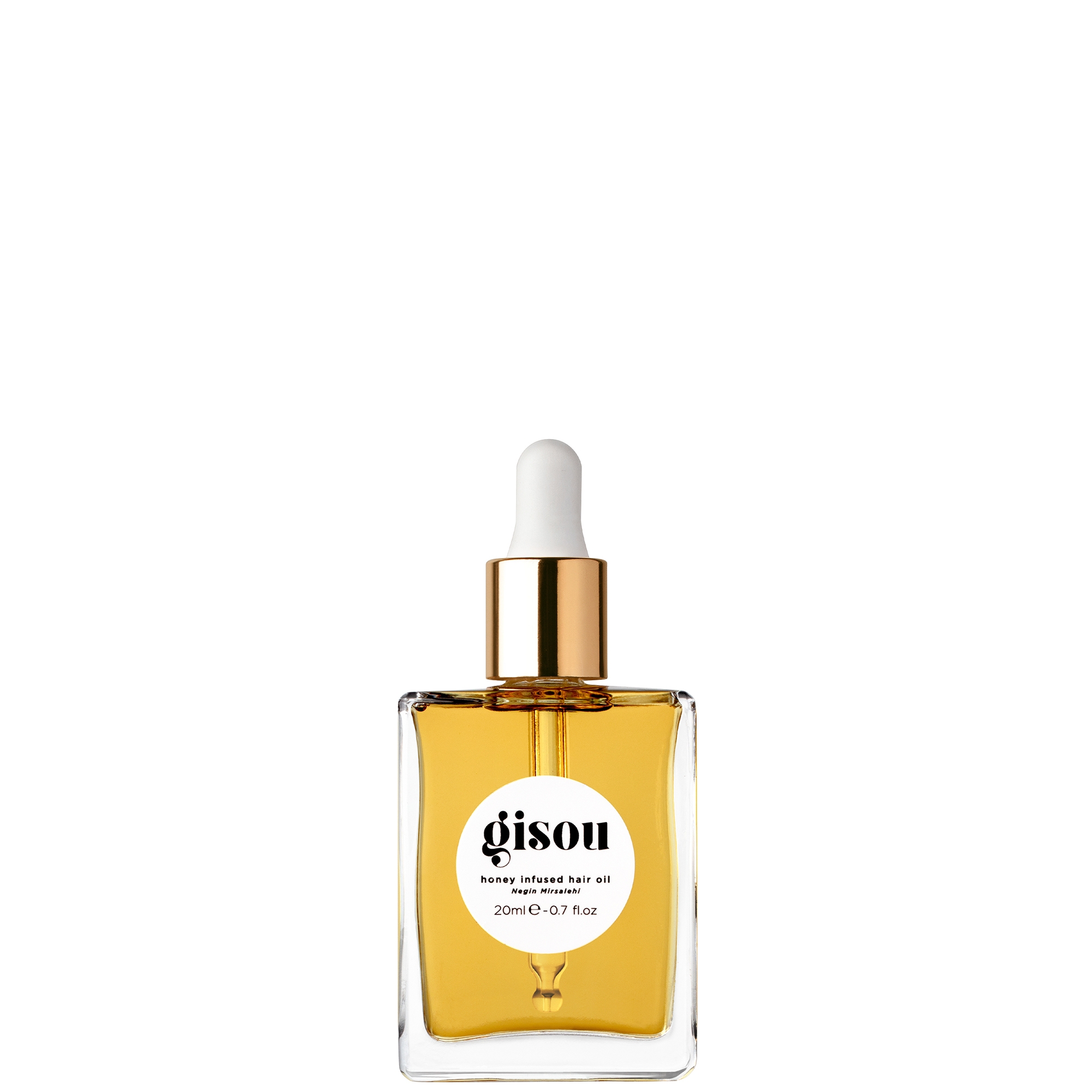
Best for: Added shine
Why it's the best: If your hair is feeling a little dull and lackluster, then you're going to want to know about this hair oil from Gisou. Infused with honey, coconut and sweet almond oils, it smells incredible and adds the most amazing shine to your ends. It's suitable for all hair types and can even be used as an overnight treatment or hair mask, too.
My review: You know when your hair is in between washes and the ends start looking quite dry and frazzled? This is the product I reach for to bring my locks back to life. I love the way it smells and the shine that it adds is unmatched. It isn't as lightweight as other hair oils on the market, so if you have finer hair, you'll want to be careful when applying this, but my thick, wavy ends lap it up.
Pros
- Smells incredible
- Adds amazing shine
Cons
- Not as lightweight as other oils in this roundup
3. Charlotte Mensah Manketti Hair Oil
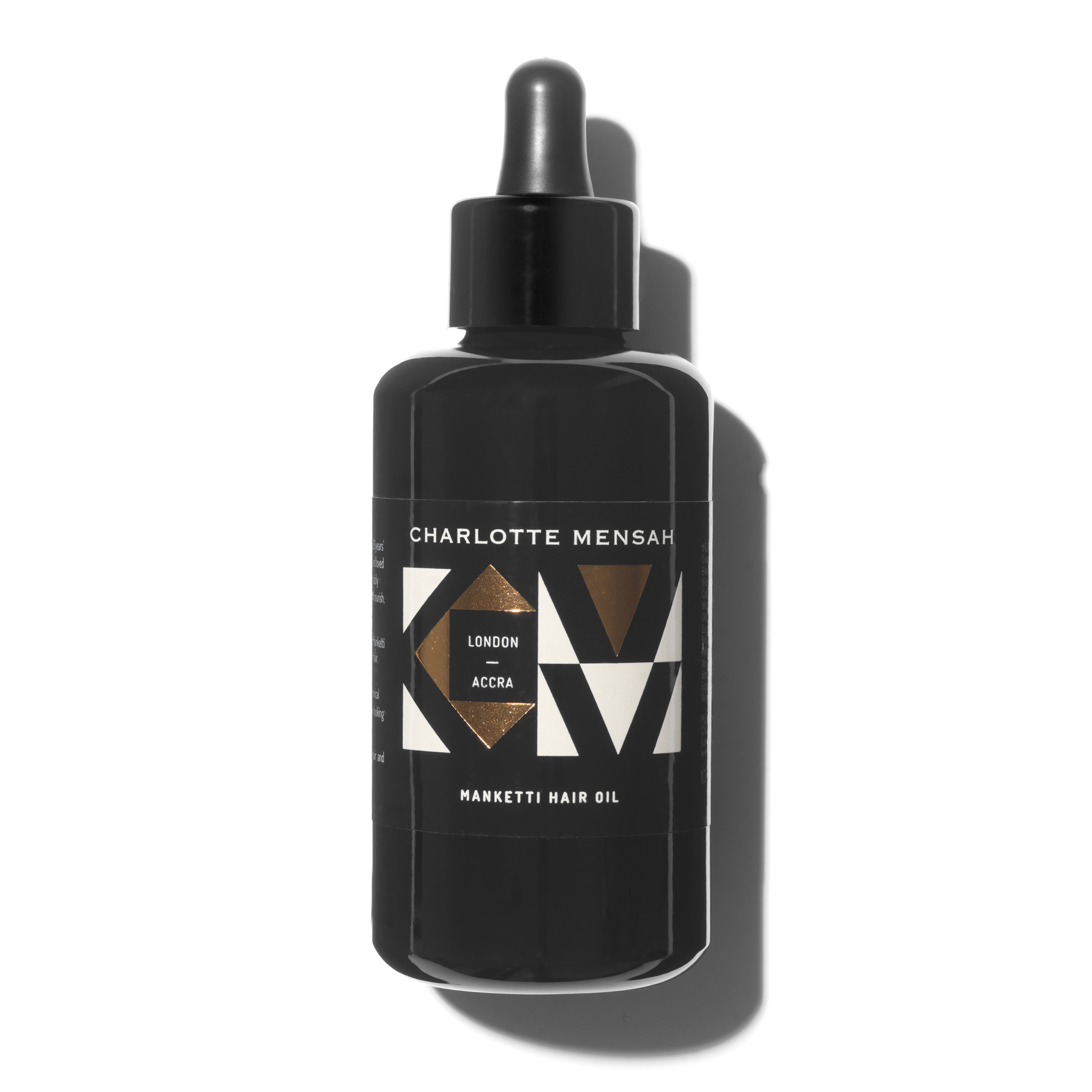
Best for: Textured hair
Why it's the best: This award-winning formula from Charlotte Mensah is incredible for curly and textured hair and can be used through lengths to add hydration, smooth and define, as well as on the scalp to soothe and nourish.
My review: As someone with thick, wavy hair, I'm a big fan of Charlotte Mensah hair products. This formula is so hydrating thanks to a blend of nourishing oils, and it always makes taming my flyaways easy work. I love that it can be used on both my scalp and ends, as it saves me from having to buy two separate products too.
Pros
- Very hydrating
- Can be used on the scalp and the ends of the hair
Cons
- Expensive
4. Virtue Healing Oil
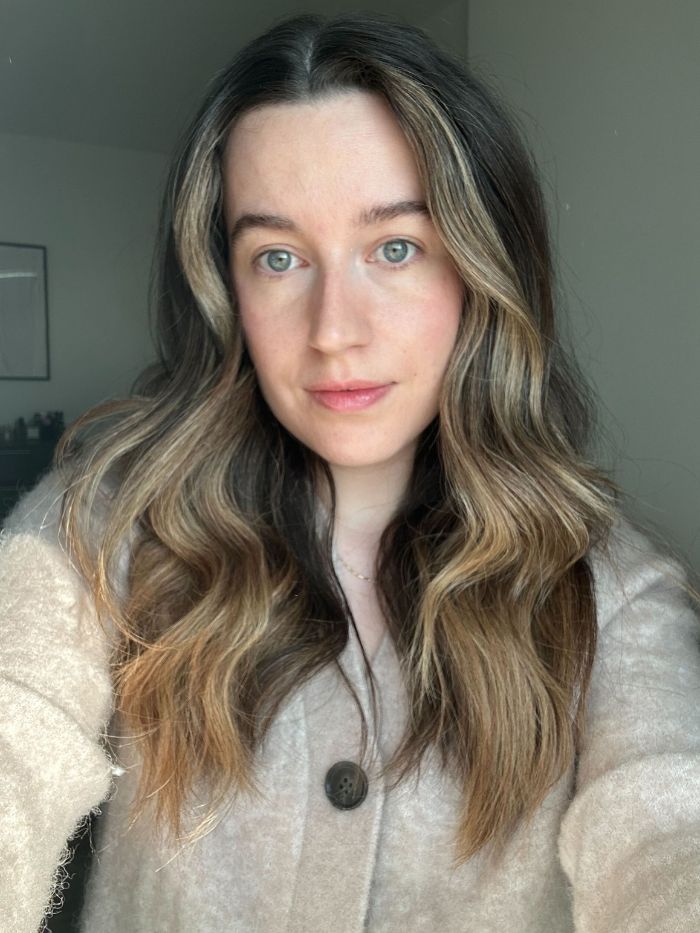
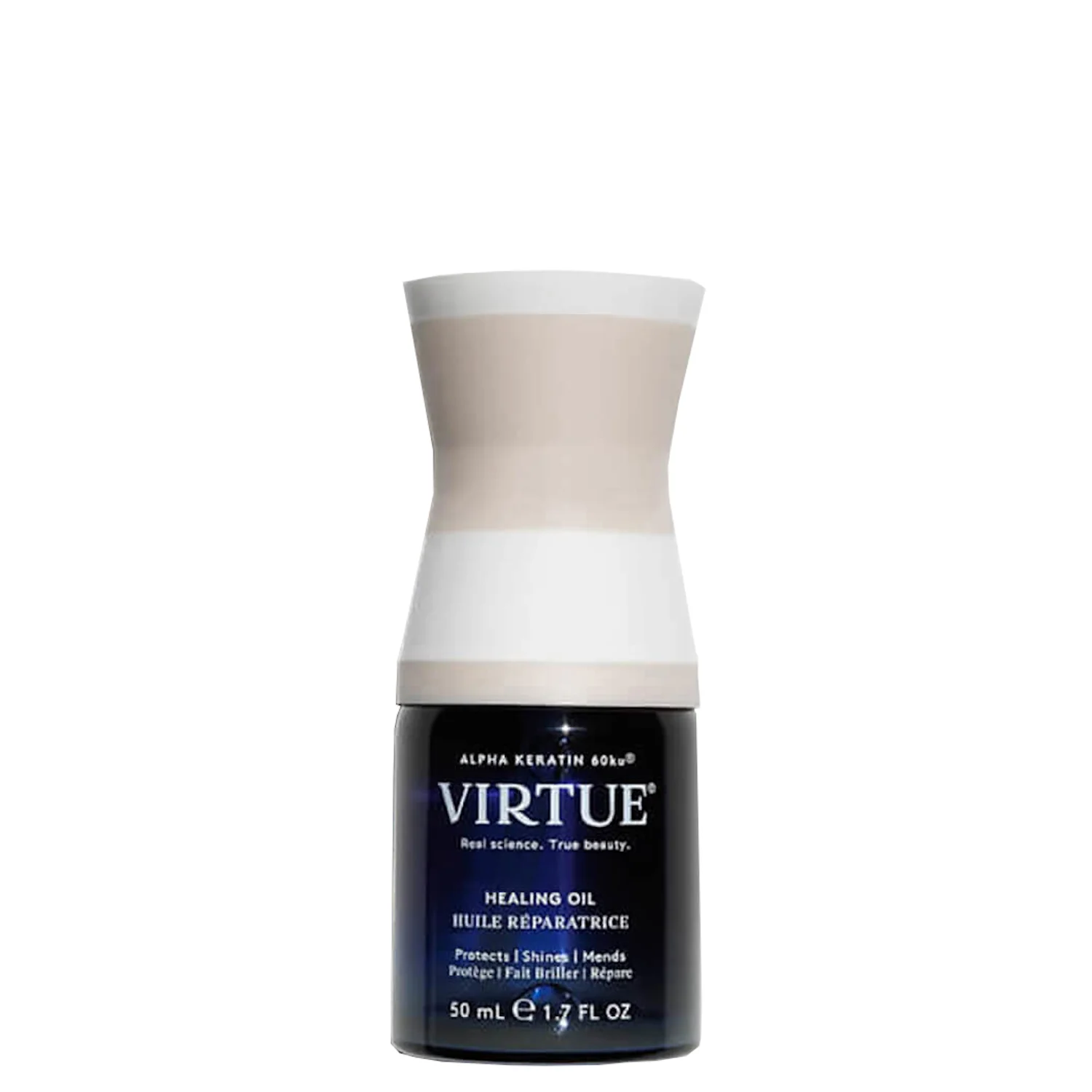
Best for: Fine hair
Why it's the best: When it comes to lightweight hair oils, this is one of the best out there for very fine hair. The oil is featherlight, so it won't weigh hair down. It also contains Virtue's Alpha Keratin 60ku®, which helps to replenish keratin in the hair, making it ideal for those with damaged hair from heat or colour treatment.
My review: Not only is this oil incredibly lightweight, but it smells like a holiday in a bottle. Infused with Kalahari melon seed oil and Tahitian tiare flower, whenever I apply it, I am transported to an island far, far away where my hair is always sleek and glossy.
Pros
- Lightweight formula
- Works to nourish damaged hair
- Smells delicious
Cons
- Have to shake before use which can sometimes get a little messy
5. Oribe Gold Lust Nourishing Hair Oil
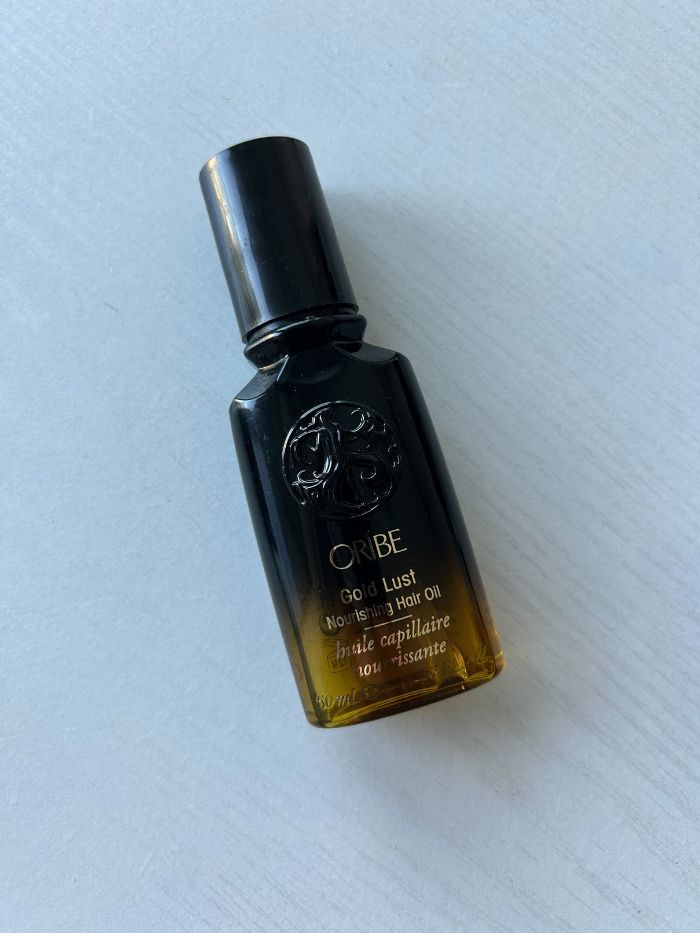
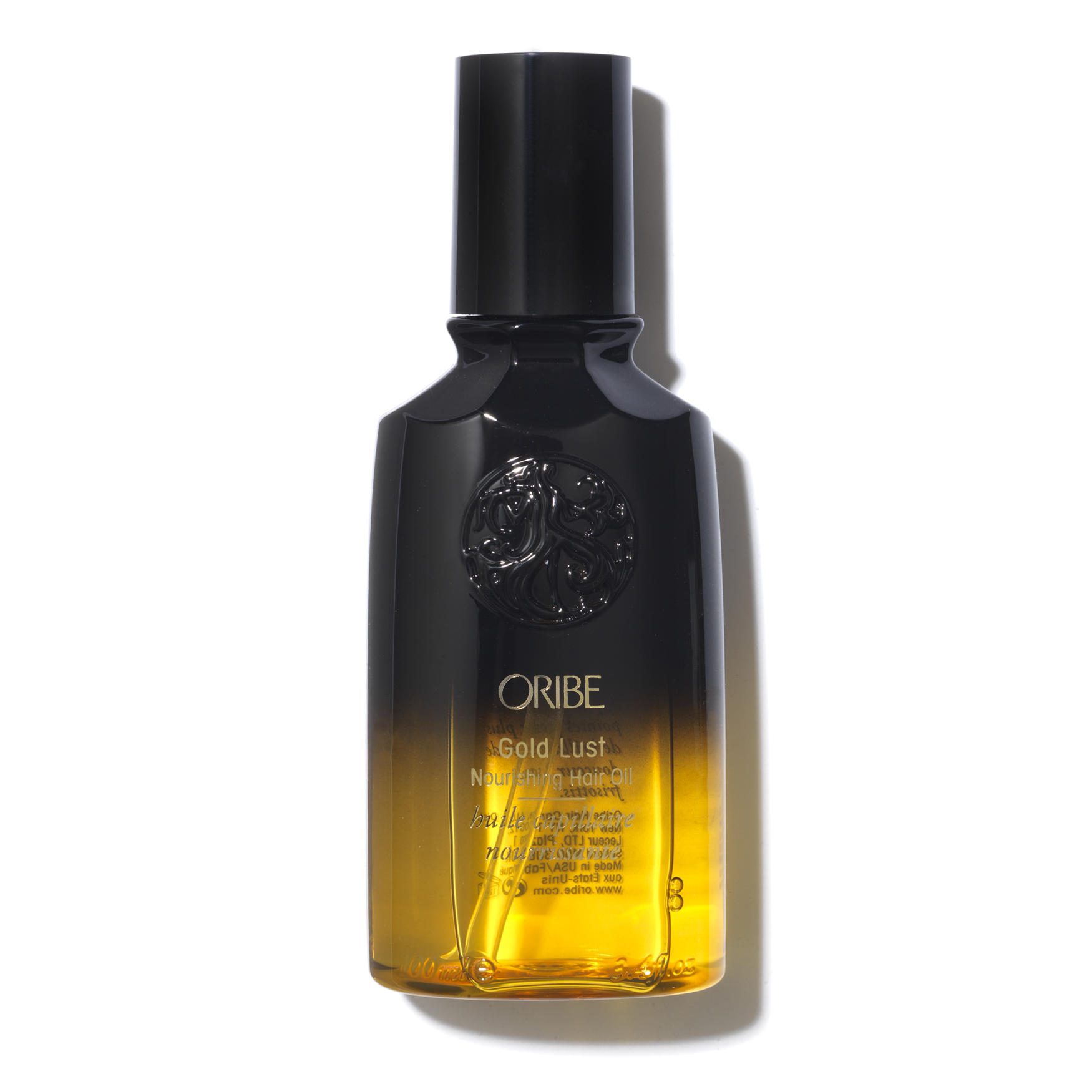
Best for: A luxury experience
Why it's the best: If you want a little bit of luxury, you can't go wrong with Oribe. The brand's hair oil features argan oil, bergamot and cassis to nourish the ends of your hair without leaving them feeling greasy or weighed down. It has been designed with coloured, damaged and dry hair in mind to help tackle flyaways and prevent damage caused by environmental aggressors. It can be used on both damp and dry hair, so it's a great multitasker.
My review: Even though this hair oil leaked all over my suitcase on my last holiday, I'm still a huge fan. Although it has a thicker consistency than some other hair oils that I have used, it completely disappears when applied to the hair and I'm left with sleek ends and subtle shine.
Pros
- Works well on coloured, damaged and dry hair
- Adds subtle shine
Cons
- Slightly thicker consistency
6. Fable & Mane HoliRoots Hair Oil
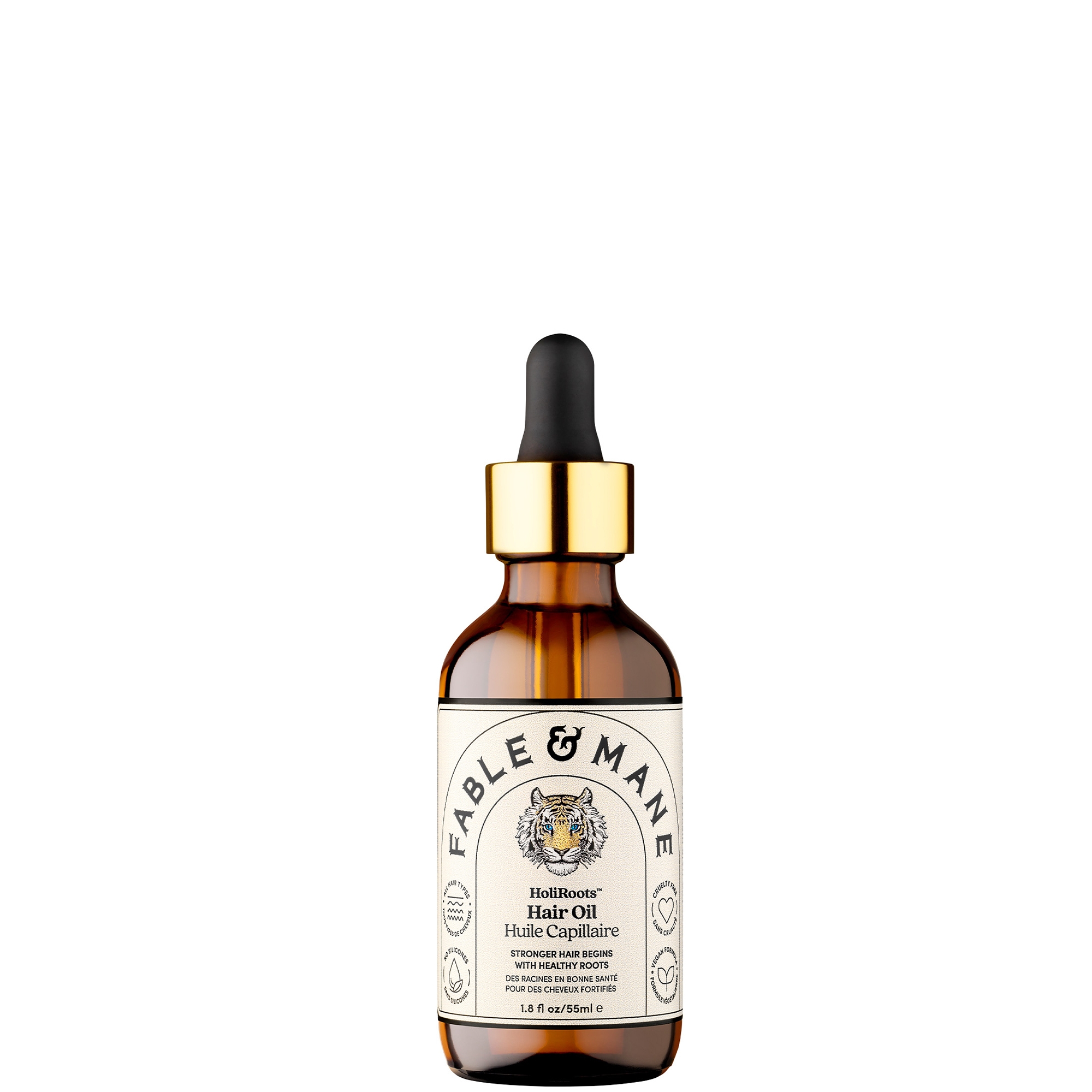
Best for: Your scalp and ends
Why it's the best: If you want a hair oil that you can use on both your scalp and ends, look no further. This hair oil has been designed to be used as a pre-wash treatment, encouraging strong, healthy hair from root to tip. How does it do this, I hear you ask? By stimulating scalp circulation, encouraging hair growth and strengthening your ends. If you're on a hair growth journey, this is a great oil to add to your hair wash routine.
My review: This literally transformed my hair, and I'm already on my second bottle. Not only do my ends feel soft and hydrated, but I've definitely noticed more hair growth since using this. I recommend it to everyone I know.
Pros
- Can be used on the scalp and the ends of your hair
- Encourages hair growth
Cons
- Adds more time onto your hair wash routine
7. Ouai St Barts Hair Oil

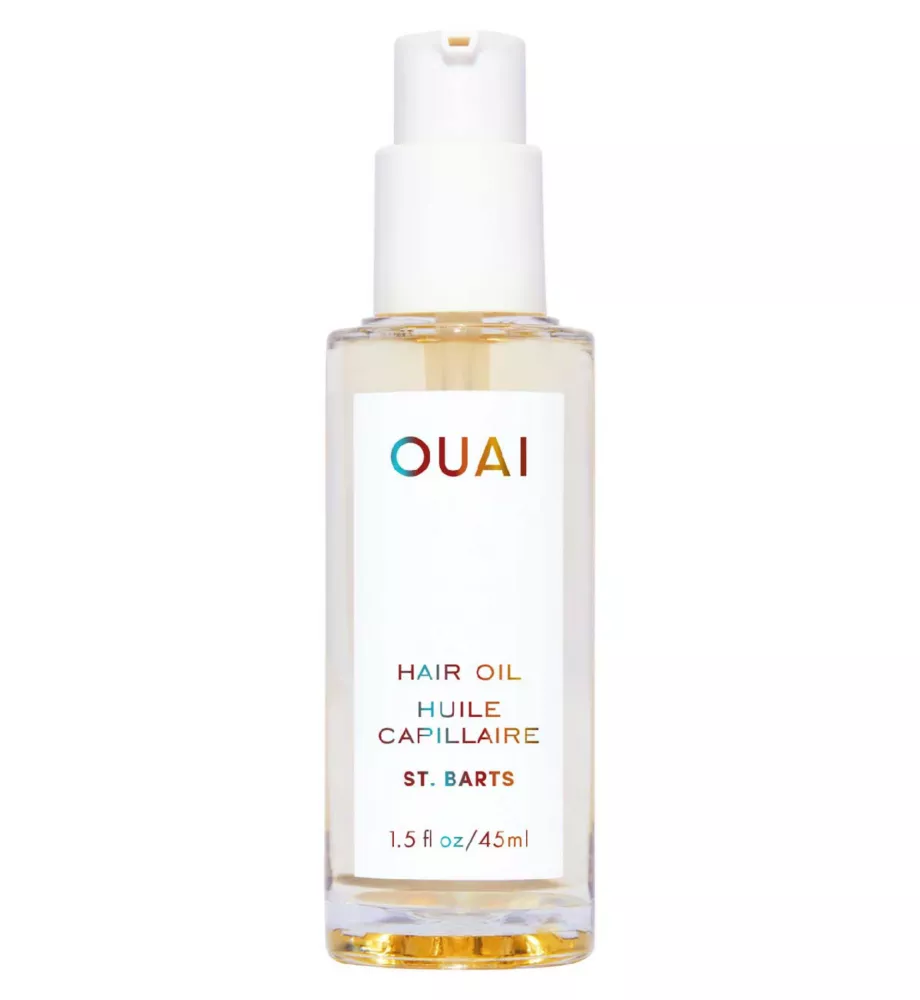
Best for: A beautiful scent
Why it's the best: Forget hair perfume, as this hair oil from Ouai will make your ends smell simply divine. It features the brand's tropical St Barts scent, with notes of dragon fruit, orange blossom, tuberose and musk. Plus, the nourishing formula adds a shiny finish and protects against heat. A holiday essential.
My review: I always get so many compliments when I use this hair oil. The scent lingers all day long, and it's a go-to product of mine in the summer months. The formula itself is so nourishing, but it's the fragrance that makes this product a cut above the rest.
Pros
- Scent lingers all day long
- Adds shine and tames flyaways
Cons
- Fragrance may be too much for some
8. Hair by Sam Mcknight Love Me Do Nourishing Oil
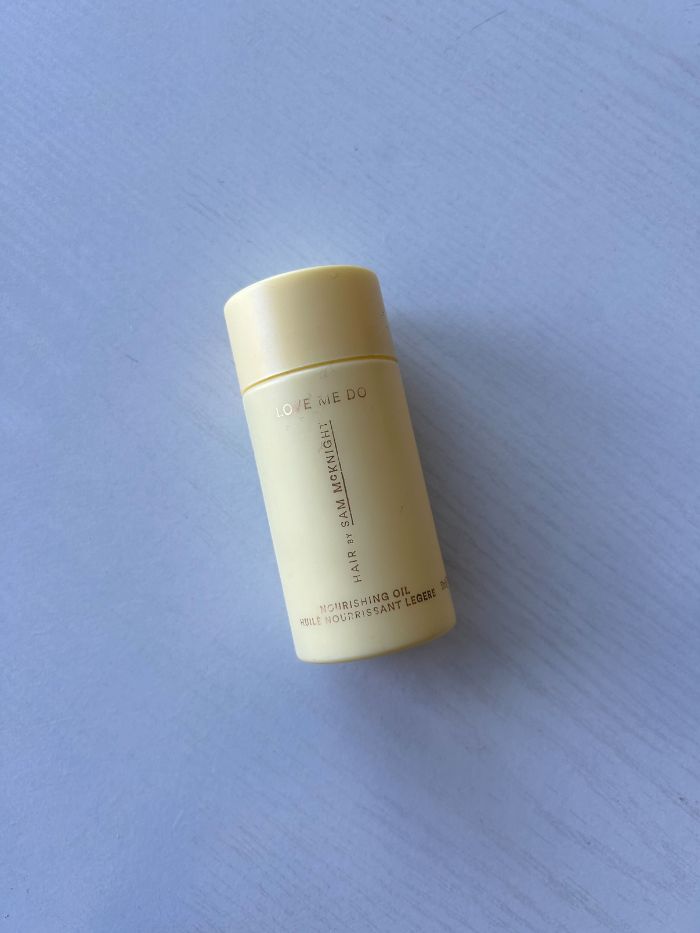
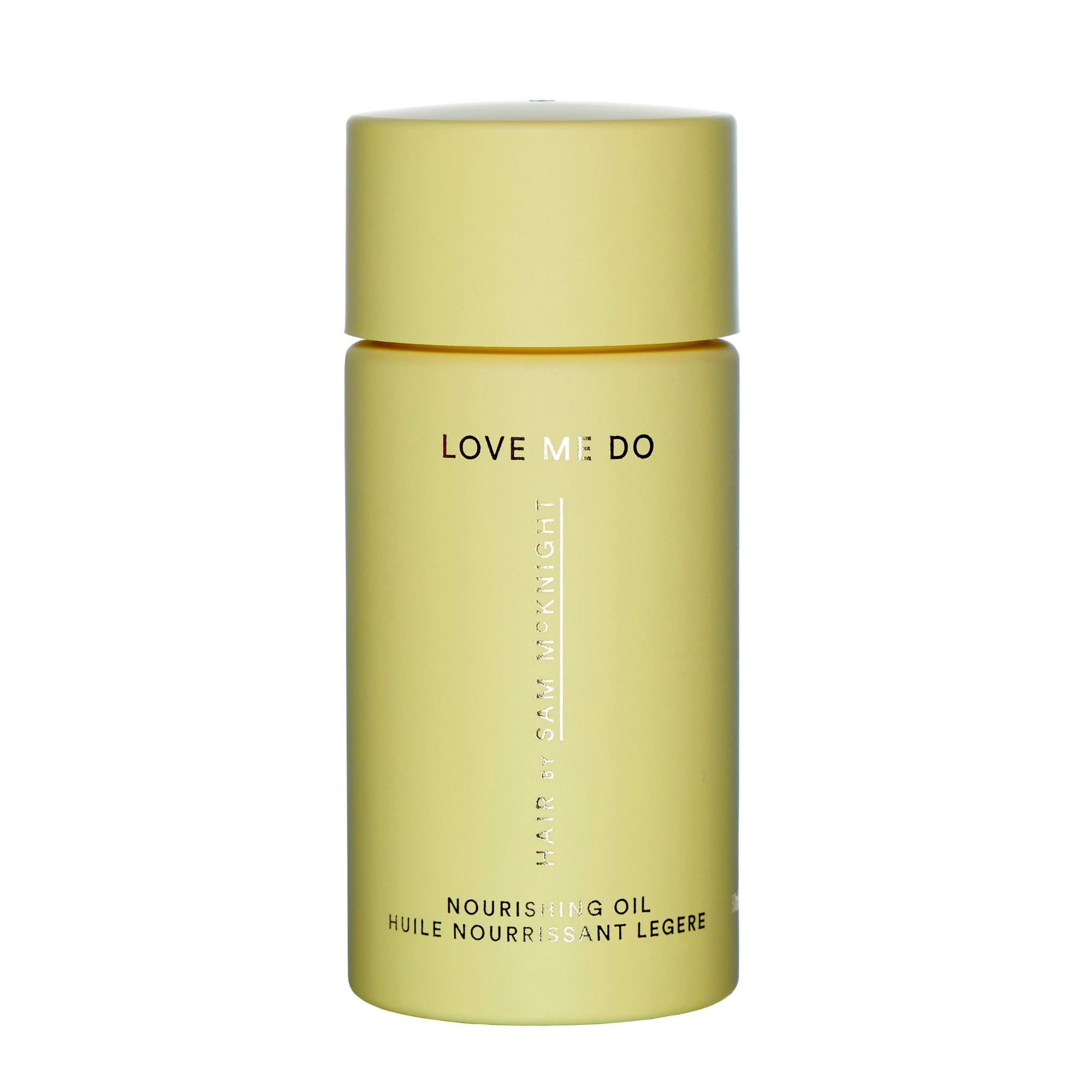
Best for: Lightweight nourishment
Why it's the best: Who knew that a hair oil could be so lightweight yet so nourishing? This ultra-light formula from Sam McKnight smooths hair, nourishes dry ends and adds beautiful shine. With argan, sunflower and camellia oil, your hair will look instantly healthier. It will also be protected from UV damage and colour fading. Pretty impressive, right?
My review: I didn't think this hair oil would work for me as it's so lightweight and I have such thick hair, but I couldn't have been more wrong, Despite its light, airy feel, this formula is so nourishing and I don't think I can ever be without a bottle.
Pros
- Super lightweight
- Nourishing formula
Cons
- Can be a little messy to apply

Grace Lindsay is the junior beauty editor at Who What Wear UK. At the age of 18 she decided to train as a makeup artist before going on to study english and media at Goldsmiths University. It was during that time that she explored her love for journalism by interning at a small beauty start-up based in Shoreditch. Since then, she has worked at a number of publications including Marie Claire and Hello!, where her love for all things beauty continued to grow.
As Who What Wear UK's junior beauty editor, she covers everything from the latest hair trends to the stand-out makeup products of the season.
- Shannon LawlorBeauty Director